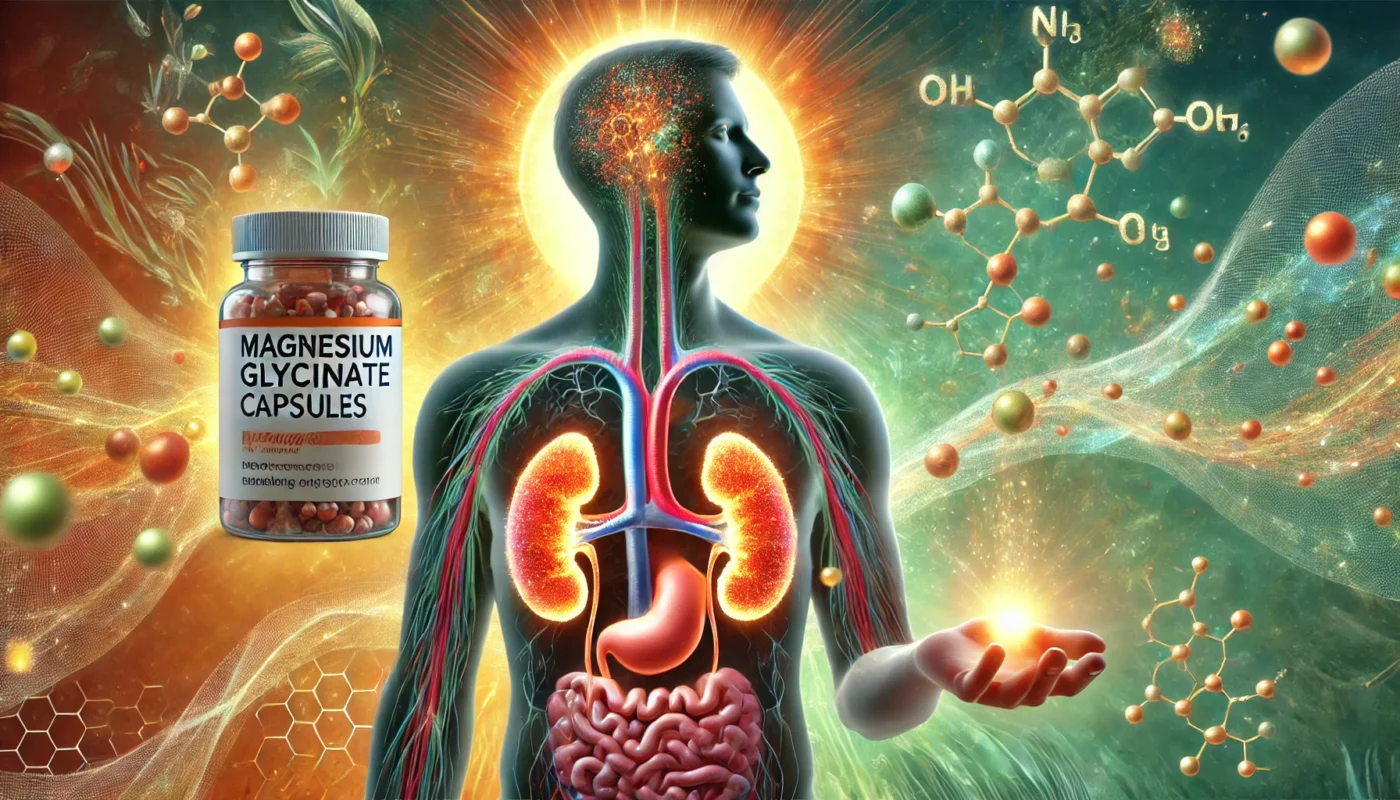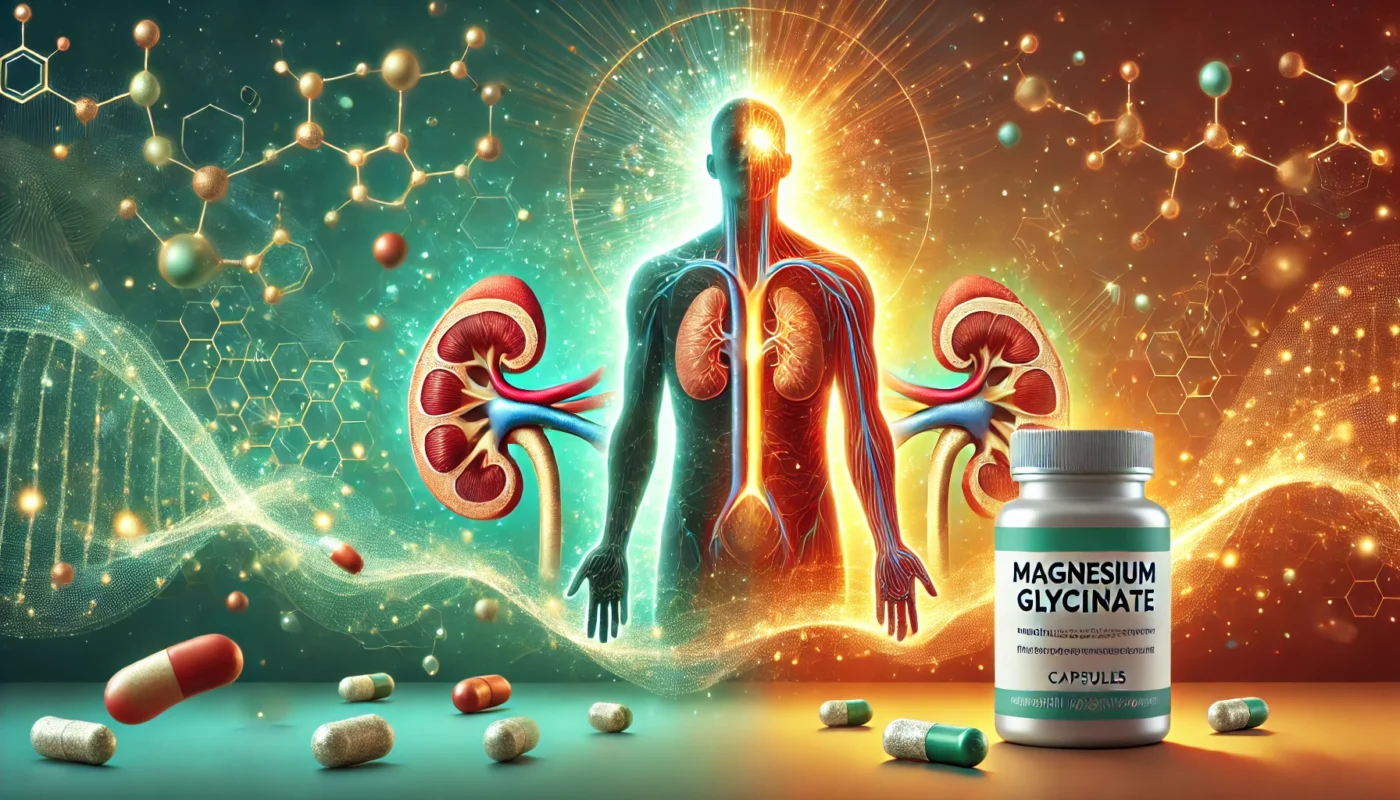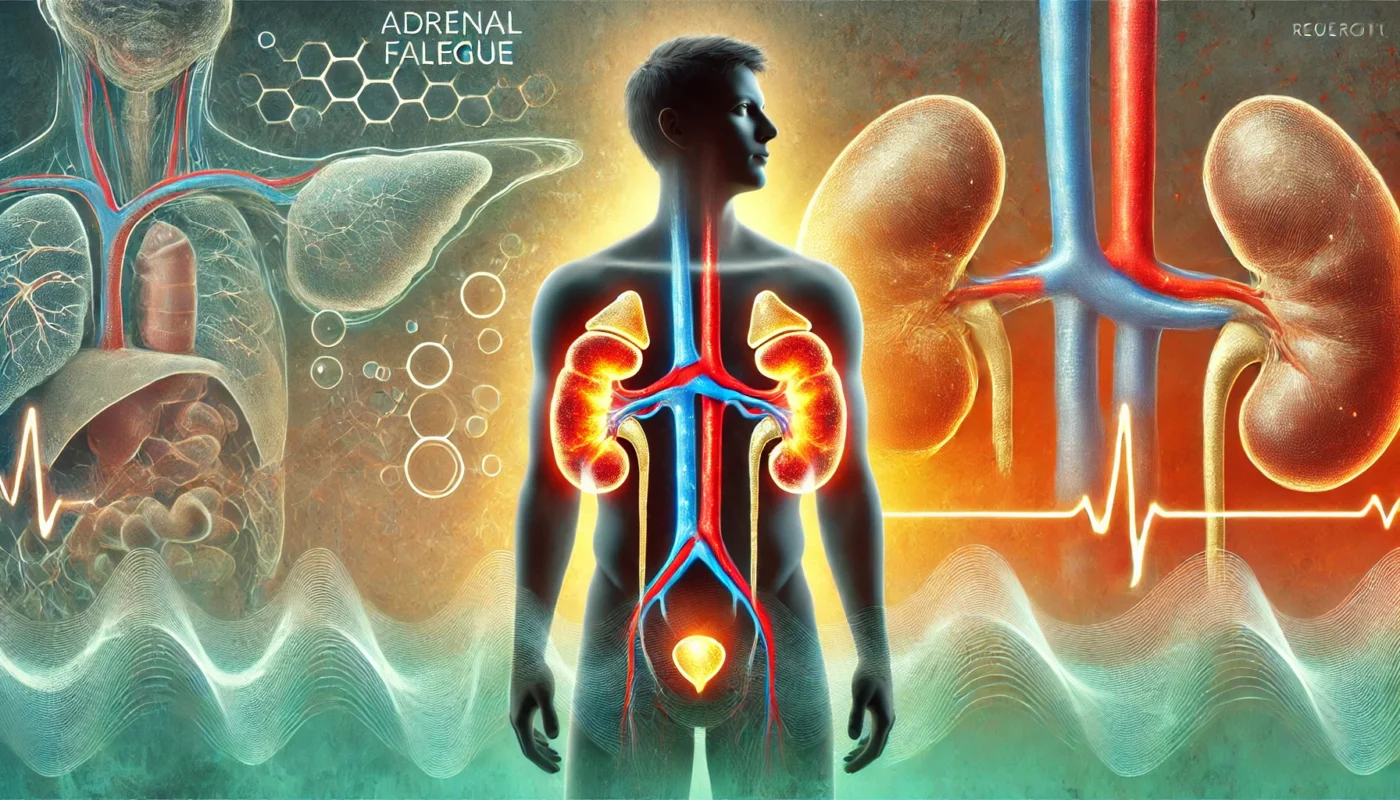Adrenal fatigue is a term often used to describe a cluster of symptoms, including chronic fatigue, brain fog, mood swings, and sleep disturbances, that stem from prolonged physical, emotional, or mental stress. While the term itself is somewhat controversial in medical circles, the symptoms are real for many people, and their search for solutions often leads to natural remedies. Among these, magnesium glycinate has emerged as a promising option. Known for its calming properties, high bioavailability, and ability to support multiple bodily functions, magnesium glycinate may play a critical role in managing symptoms of adrenal fatigue and restoring overall balance.
This article explores how magnesium glycinate supports adrenal health, combats chronic fatigue, and promotes overall wellness. It will also delve into relevant clinical findings to provide a science-backed understanding of this mineral’s potential benefits.
You May Also Like:
Magnesium Glycinate and Osteoarthritis: A Natural Aid for Joint Health
Healthy Aging for Men with Magnesium Glycinate: What You Should Know
Understanding Adrenal Fatigue: What’s Happening in Your Body?
The adrenal glands are responsible for producing key hormones, such as cortisol, adrenaline, and aldosterone, that help regulate stress responses, energy levels, and other critical bodily functions. Under chronic stress, the adrenal glands can become overworked, leading to imbalances in cortisol levels. While traditional medicine may categorize this as hypothalamic-pituitary-adrenal (HPA) axis dysregulation rather than adrenal fatigue, the symptoms—persistent fatigue, difficulty concentrating, irritability, and disrupted sleep—are well-recognized.
Magnesium plays a pivotal role in this process. As a cofactor in over 300 enzymatic reactions in the body, it is essential for energy production, nervous system health, and stress regulation. Magnesium glycinate, in particular, is highly bioavailable and less likely to cause digestive upset, making it an excellent choice for supporting adrenal and overall health.

The Role of Magnesium Glycinate in Adrenal Health
1. Regulating Cortisol Levels
Magnesium is directly involved in modulating the body’s stress response. Elevated cortisol levels—a hallmark of chronic stress—can wreak havoc on your mood, immune system, and energy levels. Studies show that magnesium can help reduce cortisol levels and improve the body’s ability to handle stress.
- Clinical Insight: A 2017 study in Nutrients found that individuals with higher magnesium intake experienced a significant reduction in cortisol levels, particularly during acute stress events. Participants who received magnesium supplementation reported improved energy and better sleep quality.
2. Promoting Relaxation and Improving Sleep
One of the primary symptoms of adrenal fatigue is disrupted sleep, often caused by an overactive stress response. Magnesium glycinate’s calming effects come from its ability to bind to gamma-aminobutyric acid (GABA) receptors in the brain. GABA is a neurotransmitter that reduces neural excitability, helping the brain shift into a more relaxed state.
- Evidence-Based Benefits: A 2021 randomized trial published in Sleep Science revealed that magnesium glycinate supplementation improved sleep onset, duration, and quality in adults experiencing chronic stress-related insomnia.
3. Supporting Energy Production
Fatigue is one of the most debilitating symptoms of adrenal fatigue. Magnesium plays an essential role in the production of adenosine triphosphate (ATP), the body’s primary energy currency. When magnesium levels are low, ATP synthesis becomes inefficient, exacerbating fatigue and reducing endurance.
- Research Highlight: A study published in Magnesium Research (2019) demonstrated that individuals with chronic fatigue syndrome (CFS) had significantly lower magnesium levels than healthy controls. Supplementing with magnesium improved their energy levels and reduced fatigue-related symptoms by 25%.

How Magnesium Glycinate Helps Combat Chronic Fatigue Symptoms
1. Reduces Muscle Tension and Cramping
Chronic stress depletes magnesium stores, often leading to muscle cramps, tension, and spasms. Magnesium glycinate can replenish these stores while also reducing the release of stress-related catecholamines like adrenaline.
2. Improves Cognitive Function
Brain fog, memory issues, and difficulty concentrating are common in adrenal fatigue. Magnesium supports neuronal health and neurotransmitter balance, improving cognitive function and mental clarity.
- Clinical Findings: A 2018 review in Frontiers in Neuroscience found that magnesium supplementation improved short-term memory and executive function in individuals suffering from chronic stress and anxiety.
3. Enhances Emotional Well-Being
Low magnesium levels are linked to mood disorders such as anxiety and depression. Magnesium glycinate’s ability to regulate neurotransmitters like serotonin and dopamine can help stabilize mood and reduce feelings of overwhelm.
Practical Considerations: Dosage, Timing, and Pairing with Other Nutrients
Recommended Dosage
For adults, a typical dose of magnesium glycinate ranges between 200–400 mg of elemental magnesium per day. It’s important to consult with a healthcare provider to determine the optimal dosage based on individual needs.
When to Take It
Magnesium glycinate is best taken in the evening or about 30–60 minutes before bedtime, as its calming properties can help improve sleep quality.
Synergistic Nutrients
- Vitamin B Complex: Supports adrenal gland function and energy production.
- Vitamin C: Reduces oxidative stress and boosts adrenal recovery.
- Omega-3 Fatty Acids: Decrease inflammation associated with chronic stress.

Safety and Precautions
Magnesium glycinate is generally safe for most individuals. However, excessive intake may lead to mild gastrointestinal side effects, such as diarrhea or nausea. People with kidney disorders or conditions that affect magnesium metabolism should seek medical advice before starting supplementation.
Lifestyle Tips to Complement Magnesium Glycinate
While magnesium glycinate is a powerful tool for managing adrenal fatigue, it’s most effective when combined with lifestyle changes that address the root causes of stress.
- Adopt Stress-Reduction Practices:
- Meditation, yoga, or deep-breathing exercises can lower cortisol levels and enhance magnesium’s calming effects.
- Follow a Nutrient-Rich Diet:
- Incorporate magnesium-rich foods like leafy greens, nuts, seeds, and whole grains.
- Prioritize Sleep Hygiene:
- Establish a regular bedtime routine and create a sleep-conducive environment.
- Engage in Gentle Exercise:
- Activities like walking, swimming, or tai chi can improve circulation, reduce stress, and enhance energy.
Conclusion
Magnesium glycinate offers a scientifically supported approach to addressing the symptoms of adrenal fatigue. By helping regulate cortisol levels, supporting energy production, and promoting relaxation, it targets many of the root causes of chronic fatigue. Its high bioavailability and gentle nature make it an ideal choice for individuals seeking to restore balance and vitality.
As with any supplement, it’s essential to consult with a healthcare provider before starting magnesium glycinate, especially if you have underlying health conditions or take medications. Combined with a balanced diet, stress-management practices, and regular exercise, magnesium glycinate can be a cornerstone of adrenal health and a path to greater energy and resilience.

References
- Magnesium and aging. Retrieved from: https://pubmed.ncbi.nlm.nih.gov/20388094/
- Magnesium in Aging, Health and Diseases. Retrieved from: https://www.mdpi.com/2072-6643/13/2/463
- Enhancement of Learning and Memory by Elevating Brain Magnesium. Retrieved from: https://www.sciencedirect.com/science/article/pii/S0896627309010447
- The Effects of Magnesium Supplementation on Subjective Anxiety and Stress-A Systematic Review. Retrieved from: https://pubmed.ncbi.nlm.nih.gov/28445426/
- Prospective association between dietary magnesium intake and physical performance in older women and men. Retrieved from: https://pmc.ncbi.nlm.nih.gov/articles/PMC9279200/
- The Integral Role of Magnesium in Muscle Integrity and Aging: A Comprehensive Review. Retrieved from: https://pmc.ncbi.nlm.nih.gov/articles/PMC10745813/
Important Note: The information contained in this article is for general informational purposes only, and should not be construed as health or medical advice, nor is it intended to diagnose, prevent, treat, or cure any disease or health condition. Before embarking on any diet, fitness regimen, or program of nutritional supplementation, it is advisable to consult your healthcare professional in order to determine its safety and probable efficacy in terms of your individual state of health.
Regarding Nutritional Supplements Or Other Non-Prescription Health Products: If any nutritional supplements or other non-prescription health products are mentioned in the foregoing article, any claims or statements made about them have not been evaluated by the U.S. Food and Drug Administration, and such nutritional supplements or other health products are not intended to diagnose, treat, cure, or prevent any disease.

